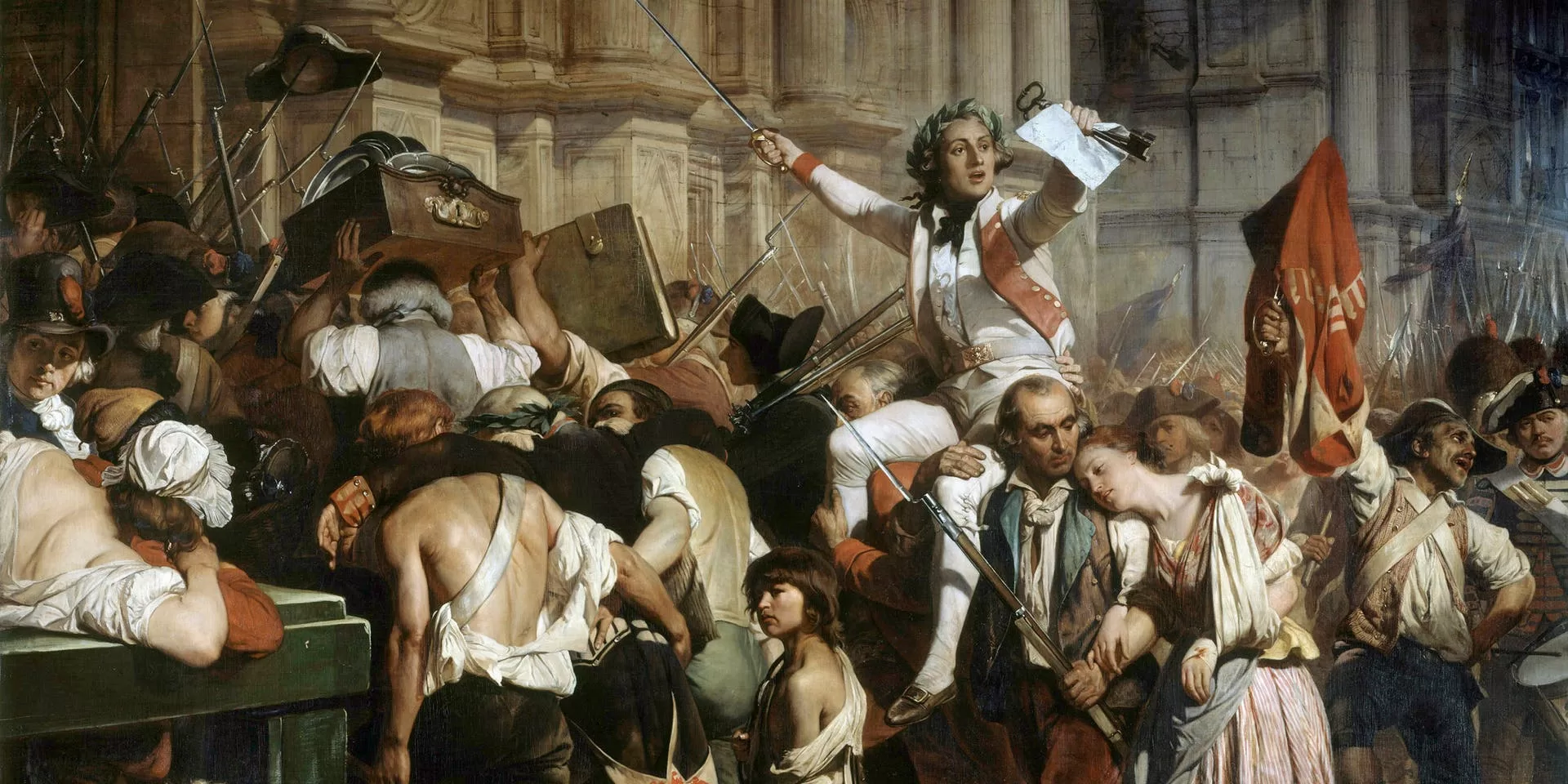In the French Revolution, we see for the first time that plan in operation which has been carried on right up to the present moment — the systematic attempt to create grievances in order to exploit them.
— Nesta Helen Webster, World Revolution
Upheaval, revolt, and rebellion are as old as the very power men have wielded over other men throughout history. When tyrants once too often tread on their subjects, the oppressed masses will spring up from their coiled state, produce their fangs of displeasure, and brutally rid themselves of the tyrants. Social turmoil has thus always been the fruit of malcontent and the yoke of tyranny becoming too heavy to bear. With the French Revolution we find that, for the first time in history, there was a large-scale organized method involved in igniting the people’s displeasure with the nobility.
This newly emerging form of social engineering used cloak-and-dagger-style tactics to deceive and instigate hatred and fuel the fiery flames of revolt. With careful planning and oblique orchestration, the dark agents of Illuminized Freemasonry (Freemasonry after the adoption of Illuminati mystery teachings) brewed an execrable elixir of chaos and administered it to the useful gawks populating the masses. This bewitching revolutionary broth, poured down the ears of the commoners, summoned from the diabolical depths of society something that would become known to history as the “Great Fear”.
Leading up to the culmination of societal pressure, the Freemasons of France infiltrated the National Assembly and made sure it implemented a whole slew of measures to prepare the masses for the exact day the revolt was to start. Especially the peasants were targeted with laws and taxes that lay heavy upon them. There were game laws called capitaineries, which stated that crops could be trampled down in the royal hunt. Game was allowed to destroy the crops, and peasants had no rights to hunt, so they could do naught against it. There was a salt tax called gabelle, a law that forced labor called corvée, and many more such repressions. All attempts at reforms were stifled by the Freemasons to aggravate the hatred of the peasants.
We must realize, however, that the king and aristocracy were not unwilling to ease the plight of the commoners. The ideological works of Jean-Jaques Rousseau had brought them to see that the situation of the peasants and working class was morally unjust. But Freemasonry, which controlled the Third Estate in the assembly (tiers état), was not content with this. They were not going to let the king enact reforms. They aimed for the absolute destruction of the king, nobility, and church, and they were intent on utilizing the popular masses as their tool.
This explanation seems the more probable when we remember that the plan of the lodges even before they became illuminized had been “to make a revolution for the benefit of the bourgeoisie with the people as instruments” (N. H. Webster, World Revolution).
Like a septic wound, they polluted the blood of society with their concerted efforts to create hardship for the peasants and workers. The agents provocateur stealthily, working towards the zenith of their seditious scheme, planned for the 22nd of July 1789. On this fateful day, in towns and villages all over France, the surreptitious announcement was made, by “representatives of the king,” that brigands were on the march and that all good citizens were to take up arms. These skulking messengers of mayhem often wielded faux official placards stating that the message to burn the chateaux was from none other than King Louis XVI himself. The king was alleged to have called for the “burning of all chateaux but his own.” The commoners who had grown so disgruntled by the arrogance of the nobility were easily prodded into taking up all the arms they could muster and embark on a tour of rampage. So, the dark agents that fomented the uprising got exactly what they desired. The populace had been armed and mobilized and made to revolt against law and order, a hallmark that would become indicative of all social revolutions to come.
You thought the Revolution ended in France, and the Revolution in France was only the first attempt of the Jacobins. In the desires of a terrible and formidable sect, you have only reached the first stage of the plans it has formed for that general Revolution which is to overthrow all thrones, all altars, annihilate all property, efface all law, and end by dissolving all society.
— Augustin Baruel







